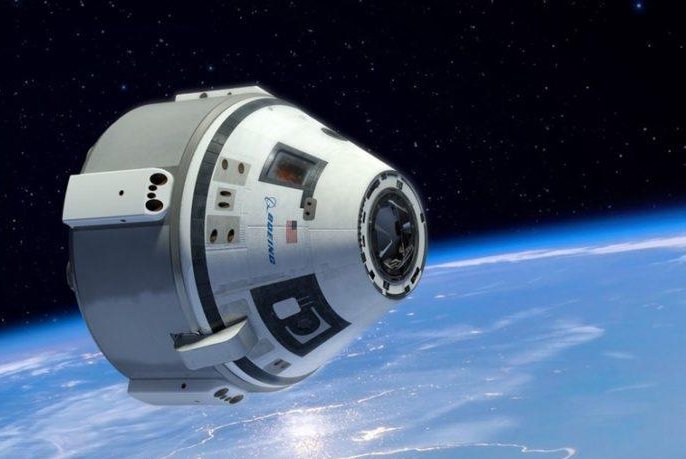A rendering shows what Boeing's Starliner CST-100 capsule might look like in space. Image courtesy of Boeing
ORLANDO, Fla., Nov. 18 (UPI) -- Boeing Co. made a stronger retort Monday to an audit that criticizes NASA for making "unnecessary payments" to the company for developing a capsule to carry people into space.
Boeing took issue with the NASA inspector general's audit after it was released Thursday, saying the company had taken on significant up-front financial risks for NASA. But its new response goes further by questioning figures used in the audit.
The audit said NASA overpaid Boeing by up to $287 million when the agency sought to address an anticipated gap in missions to deliver astronauts to the International Space Station. That gap was caused partly by Boeing's own delays.
The audit also said Boeing's Starliner trips will cost $90 million per seat with four seats, compared to SpaceX's $55 million.
In a detailed statement Monday, Boeing said it "rejects" the average seat price assessment in the audit.
"Boeing will fly the equivalent of a fifth passenger in cargo for NASA, so the per-seat pricing should be considered based on five seats rather than four," Boeing said. "For proprietary, competitive reasons Boeing does not disclose specific pricing information, but we are confident our average seat pricing to NASA is below the figure cited."
SpaceX previously said it could deliver as many as seven astronauts per trip.
Boeing's new retort says Starliner has "superior value," and that the company believes Starliner is "much safer" partly because it lands on land rather than at sea. SpaceX's Dragon capsule lands at sea, as did Apollo program capsules.
In 2014, Boeing and SpaceX were awarded contracts to pursue Commercial Crew Program launches to the space station. In 2019, those contracts are valued at $4.3 billion and $2.5 billion, respectively.
NASA's head of human spaceflight programs, Ken Bowersox, had also pushed back against the audit findings. But if anyone should be upset by the audit, it should be NASA, said Marco Caceras, senior analyst for The Teal Group, an analyst group that focuses on aerospace and defense industries.
"You can't really fault Boeing for demanding more payment," Caceras said. "Boeing can say they're safer, but the reality is we don't know yet. Pushing the envelope as SpaceX does has cost them a few times, but SpaceX has good reliability overall for actual launches."
Caceras said it's true that SpaceX already had cargo capsules in 2014, but he said Boeing has been working on plans for a space capsule for years.
Caceras said the audit raises "reasonable critiques."
"From NASA's standpoint, they do want competition, and they know Boeing will never compete with SpaceX on price. So the extra payment was kind of like an insurance policy for NASA," Caceras said.
"SpaceX has a much different corporate culture, they are much more efficient overall. When you figure in SpaceX's reusability of the rocket, there's just no way Boeing can compete," he said.
Both the Crew Dragon capsule and Boeing's Starliner are designed to be reused several times.
The Crew Dragon will launch on a Falcon 9, which has proven its ability to land and be reused. Starliner will launch on an Atlas V -- made by United Launch Alliance -- which has a safe record, but is not reusable.















